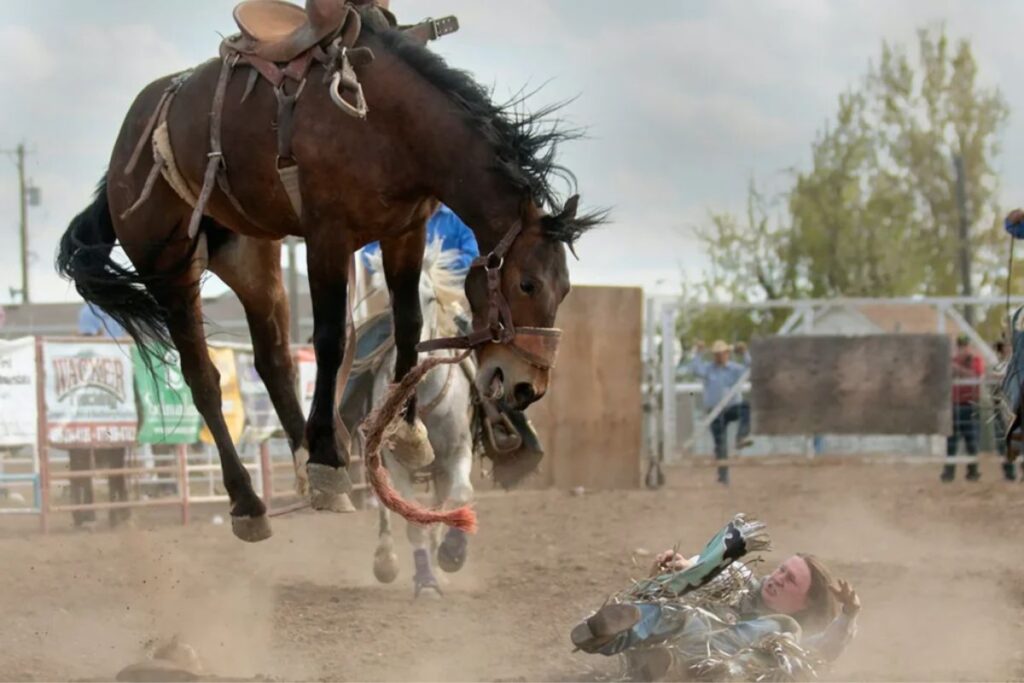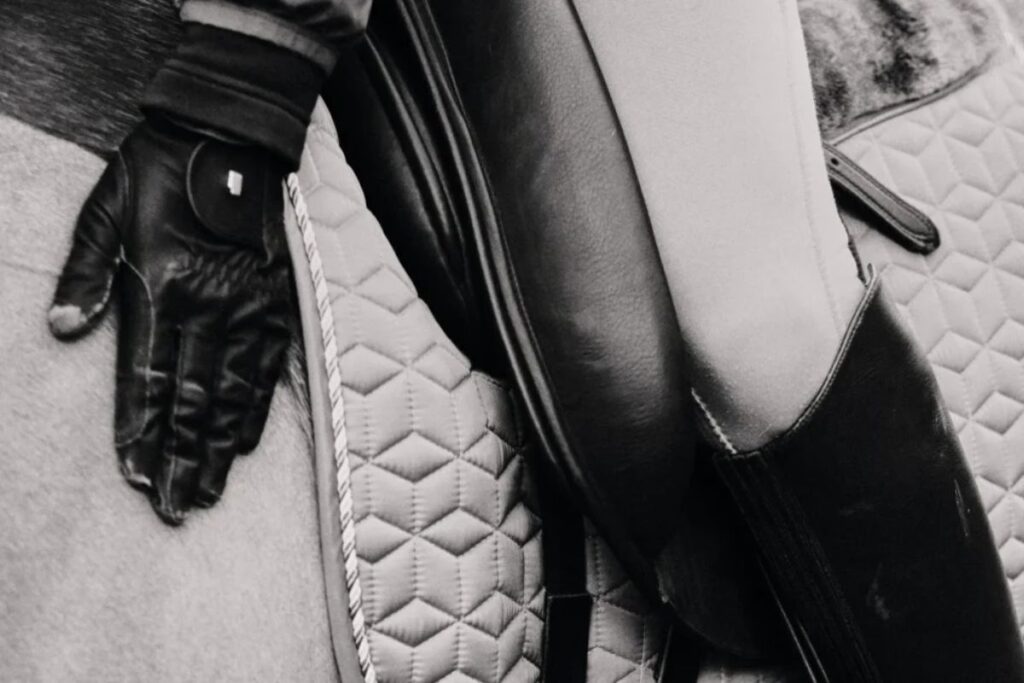Menu

Anyone who's had a ride on a horse that bucks knows just how uncomfortable it can be. It can come out of nowhere, and sometimes it can be hard to pinpoint what triggers it. Horses can buck in many ways and for many reasons, but according to Sue Dyson, a specialist in equine orthopaedics, there's no doubt that horses primarily buck due to pain.
"Horses originally developed the bucking action as a means of throwing off predators," says Sue Dyson, who recently published a scientific study on horses' bucking behaviour.
Sue Dyson is a globally renowned expert in equine orthopaedics. She has a keen interest in lameness and poor performance in sport horses. She has published more than 200 scientific reports on lameness and is also a co-author of 'Diagnosis and Management of Lameness in the Horse', 'Equine Scintigraphy' and 'Clinical Radiology of the Horse'
Sue Dyson stresses that horses that consistently and frequently buck, need a visit from a vet.
"Even if the horse doesn't throw you off, its bucking is a sign that it needs help," says Sue Dyson.
In her study, Sue Dyson has listed several reasons why horses buck. Most of them are pain-related. According to Sue Dyson, a horse's bucking is a natural response to pain.
Also check out: Conflict behaviour in Icelandic horses
Kissing spines (overlapping spinous processes) are one of the most obvious reasons for a horse to buck. If the horse has kissing spines, these are pushed even closer together when you mount the horse, causing pain.

The joints and ligaments around the SI joint can become damaged due to wear and tear or outright injuries. "These horses often only buck when they're ridden, not on the lunge. They buck when the back arches, usually in canter. They might kick out or to the side. As a rider, you'll likely not feel that the horse is trying to get you off," says Sue Dyson.
60-90% of active adult horses have gastric ulcers. Some horses with gastric ulcers become very distressed during riding, especially in canter, because the stomach acid is sloshing around in the stomach. This can be enough to make them buck.

A poorly fitted saddle can cause the pressure to be concentrated in a very small area or even pinch the horse. This often happens right behind the shoulder. Regardless, poorly fitted equipment can bother the horse to such a degree that it responds by bucking. "Some horses have a "buck point" right behind the saddle. Pressure in this area can make the horse buck," adds Sue Dyson.
Buck-related pain can come from anywhere on the body. According to Sue Dyson, lameness can also make a horse buck, but it can also come from the complete opposite end of the body. For example, a broken tooth can hurt a lot when the horse holds its head in a certain position. These horses will often toss their heads, but it can also manifest in the horse bucking.
If the horse gets startled, and the rider falls off, it might react by bucking. Often, the horse will afterwards stand looking surprised and frightened. These horses, according to Sue Dyson, may be terrified of the rider getting back on.
Whether the horse is scared, anticipates pain or just doesn't like being ridden, some horses have learned from past experiences that they can get the rider off by bucking. This can be a great relief for the horse if it associates riding with discomfort. If the behaviour is not addressed, it can become a vicious cycle.
Also check out: Your imbalances affect your horse. Therefore, it should not be your therapist
When a horse bucks, it can represent both something good and something bad. Horses can buck when they're playing in the field and sometimes also while being ridden. "The horse can be very lively and can give a few bucks as an expression of joy," says Sue Dyson. However, Sue Dyson emphasizes that there's a significant difference between a happy buck and one stemming from pain. Happy bucks are usually something the horse does once. If the horse bucks every time you ride or does a whole series of bucks, it's something that needs to be taken very seriously.
SOURCE: "Why do horses buck?" - based on a study by Sue Dyson.